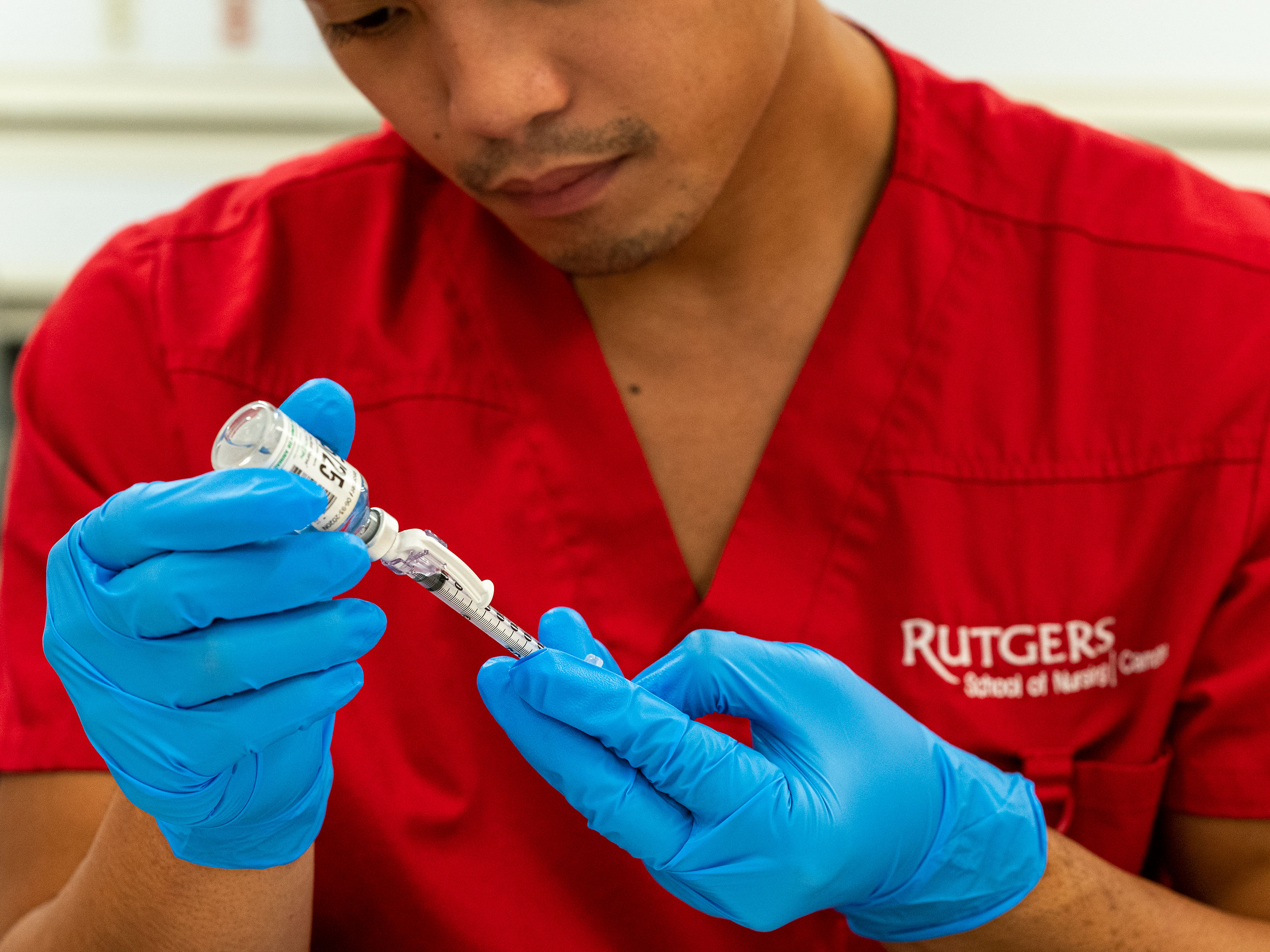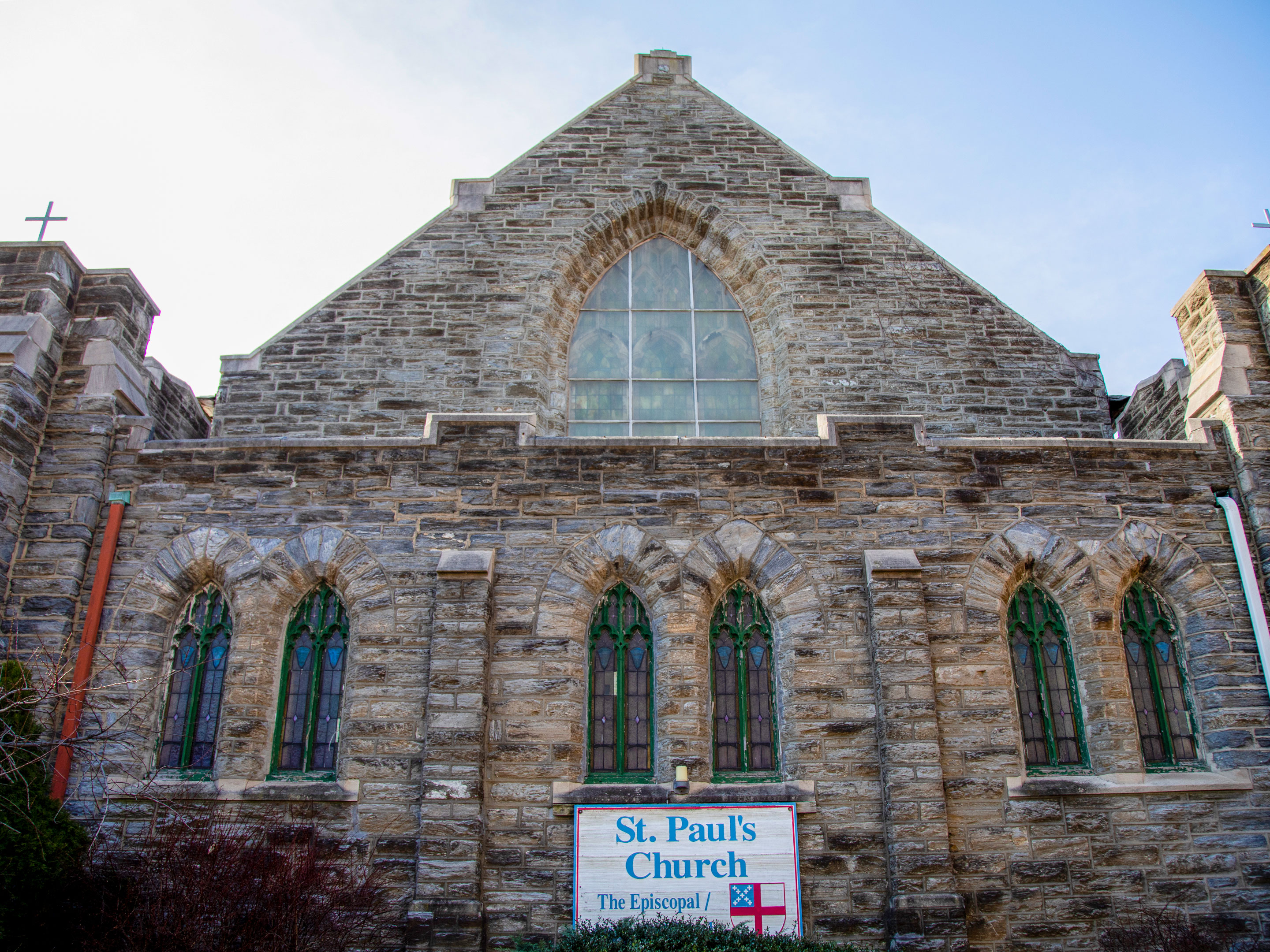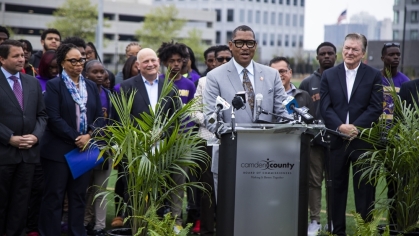Safe Space

From the outside, St. Paul’s Episcopal Church in Camden looks much like it has for nearly 200 years. From the sturdy block foundation to the tall, angular façade reaching skyward and the wide, arching doorway, the church has been a welcome refuge for generations of congregants. Step inside, however, and one quickly realizes that St. Paul’s is an extraordinary work in progress, one meeting the needs of its diverse community.
A health clinic run by Rutgers School of Nursing–Camden now offers a safe space for guests to receive basic medical care and advice. Many of the guests have no insurance and previously had to rely on emergency room visits to address routine conditions.
“This is a transient population, but members of the community have come to depend on the clinic as a center for dependable health care support,” said Margo Wallace, director of the Center for Academic Resources, Engagement, and Services (CARES) at the School of Nursing and a co-coordinator of the clinic.
In late 2020, Rev. Mark Smith approached Donna Nickitas, dean of the School of Nursing–Camden, about a partnership that would allow members of the community to receive more comprehensive health care at the church. Smith quickly learned that he and Nickitas both wanted to help Camden residents experiencing homelessness, who were suffering at a rate disproportionate to the general population.
“The church serves breakfast every Sunday morning to those who are hungry, and many of those guests have had unattended medical needs,” said Carlie Ale, who co-coordinates the clinic with Wallace.

A School of Nursing instructor and nursing students are now at the church from 7:30 to 11 a.m. Sunday mornings to offer health services such as glucose monitoring, blood pressure screenings and wound care. The staff also provides nursing triage and COVID-19-related services, including testing and vaccinations, as well as assistance with referrals for those in need of specialized care.
The clinic’s nursing students, in their final semester and enrolled in a community health course, receive credit for clinical experience. In addition to providing services, said Ale, these students gain insight about the dynamic health challenges that underprivileged individuals face.
Wallace noted that the students benefit immeasurably from interacting with patients in their own environment. This opportunity allows students to see firsthand the lack of resources, care and access that underprivileged patients must contend with.
“The clinic is teaching the students to have challenging conversations and provide for our most vulnerable populations,” Wallace said.
Rutgers University–Camden Chancellor Antonio D. Tillis noted the spirit of civic engagement and cooperation between the School of Nursing–Camden and its neighborhood partners that made the health clinic possible.
“The genuine desire among our students, faculty, and community members to help one another is reflected in the ease with which we were able to form this partnership,” Chancellor Tillis said. “The success of the clinic exemplifies Camden’s ability to work together and provide support to those who need it most.”


